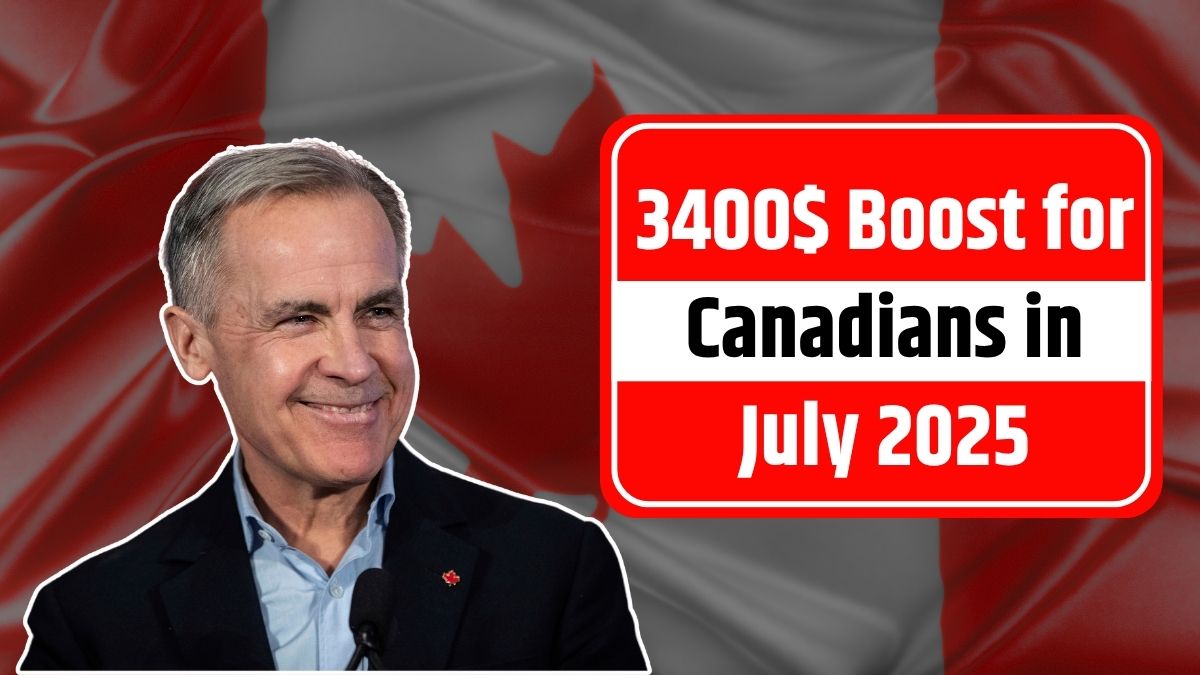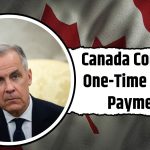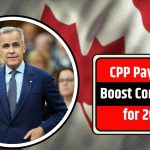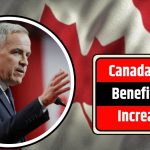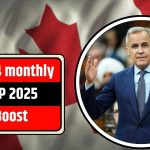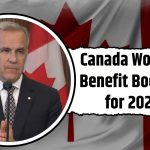The Canada Revenue Agency (CRA) and Service Canada are once again stepping in to ease the financial burden on eligible citizens through a series of scheduled benefit payments this July. These Canada.ca Benefit Payments are part of an ongoing effort by the federal government to assist residents in managing basic living expenses such as groceries, rent, utilities, child care, and more.
From the Ontario Trillium Benefit (OTB) to Veteran Disability Pensions, Canadians can expect several forms of support during the month. Here’s a detailed breakdown of each benefit, payment dates, and eligibility criteria.
Ontario Trillium Benefit (OTB): Monthly Relief for Low-Income Ontarians
The Ontario Trillium Benefit is a monthly tax-free payment offered to low- and moderate-income individuals and families living in Ontario. It includes three key credits:
- Ontario Energy and Property Tax Credit (OEPTC)
- Northern Ontario Energy Credit (NOEC)
- Ontario Sales Tax Credit (OSTC)
To qualify, residents must file an income tax return and be eligible for at least one of the above credits. The amount received depends on several personal factors, including age, marital status, number of dependents, and property taxes paid.
Those residing in Ontario and meeting the qualifications will continue to receive this monthly payout, which plays a significant role in offsetting high energy costs and property tax bills.
Canada Child Benefit (CCB): Supporting Families Raising Young Children
The Canada Child Benefit is a monthly, tax-free payment that helps families with children under the age of 18 cover essential living costs like food, clothing, and educational supplies.
To receive the CCB, a recipient must be:
- A resident of Canada,
- The primary caregiver of a child,
- Living with a child under the age of 18.
The next scheduled CCB payment will be made on July 18, 2025.
Here’s what families can expect to receive this year:
- Children under 6 years: Up to $648.91 per month or $7,787 annually
- Children aged 6 to 17: Up to $543.33 per month or $6,570 annually
The benefit was increased by 4.7% in the previous fiscal year, making it even more helpful for eligible families in 2025.
Canada Pension Plan (CPP): Steady Income After Retirement
The Canada Pension Plan offers a monthly retirement income to Canadians who have contributed to the CPP during their working years.
To qualify, applicants must:
- Be at least 60 years old,
- Have made enough contributions through their employment history.
CPP payments for July will be released on July 29, 2025. The amount varies depending on:
- Total contributions made,
- Years of contribution,
- Age at the time of first payment.
While the average monthly payment is around $900, those who begin receiving CPP at age 65 can qualify for a maximum of $1,433 per month. This makes CPP a vital income stream for many retired Canadians.
Old Age Security (OAS): Monthly Pension for Senior Citizens
The Old Age Security benefit is a monthly payment for Canadians aged 65 and above, designed to ensure income stability in retirement.
Eligibility depends on:
- Age,
- Years lived in Canada after age 18 (minimum 10 years),
- Annual income.
Though most people are automatically enrolled, those who don’t receive any notification from Service Canada by age 64 are advised to apply proactively.
The next OAS payment will be made on July 29, 2025, with the following updated maximum amounts:
- Ages 65 to 74: Up to $727.67 per month
- Ages 75 and older: Up to $800.44 per month
- Guaranteed Income Supplement (GIS) for singles: $1,086.88
- GIS for married couples: $654.23 each
- Combined OAS and GIS (Couples): $1,381.90 per month
- Survivor (single, low income): Up to $1,647.34 per month
These figures ensure that low-income seniors and long-time residents of Canada continue to have access to dependable financial support.
Veteran Disability Pension (VDP): Honoring the Sacrifice of Canadian Heroes
Managed by Veterans Affairs Canada, the Veteran Disability Pension is a monthly tax-free benefit for Canadian veterans who were injured or developed medical conditions due to their military service.
This benefit covers:
- Canadian Armed Forces veterans,
- WWII and Korean War veterans,
- Certain RCMP members and wartime civilians.
The amount varies based on the disability rating, with the maximum payout for a Class 1 disability being $3,444.59 per month.
The next disbursement date is July 30, 2025. This essential support serves as both compensation and recognition for veterans’ service and sacrifices.
Canada Carbon Rebate (CCR): Final Payment for Late 2024 Filers
The Canada Carbon Rebate (CCR) was a quarterly, tax-free payment designed to offset the cost of federal carbon taxes.
However, the CCR officially ended on April 22, 2025, following the abolishment of the consumer carbon tax. Still, some Canadians may receive their final CCR payment in July 2025 if:
- They filed their 2024 taxes late (after April 2, 2025),
- They live in federally regulated provinces like Alberta, Ontario, or Manitoba.
This final payout will serve as a closing chapter for the now-discontinued program, offering temporary relief for those who qualify.
July 2025 Payment Schedule Recap
Here are the key Canada.ca benefit payments scheduled for July 2025:
| Benefit | Payment Date | Maximum Amount |
|---|---|---|
| CCB | July 18, 2025 | $648.91/month (under 6) |
| CPP | July 29, 2025 | $1,433/month (maximum) |
| OAS & GIS | July 29, 2025 | Up to $1,647.34/month |
| Veteran Disability Pension | July 30, 2025 | Up to $3,444.59/month |
| Trillium Benefit (OTB) | Ongoing | Varies (monthly credit) |
| Carbon Rebate (CCR) | Final payment in July | Amount varies by region |
Government Assistance Continues to Cushion Economic Pressure
With inflation and the cost of living continuing to impact households nationwide, the CRA and Service Canada remain key agencies in delivering timely, tax-free assistance to millions of Canadians.
Whether it’s raising children, paying rent, or retiring with dignity, these programs ensure that Canadian residents don’t have to bear the burden alone. Eligible individuals are advised to ensure their taxes are filed and banking information is updated to avoid payment delays.
